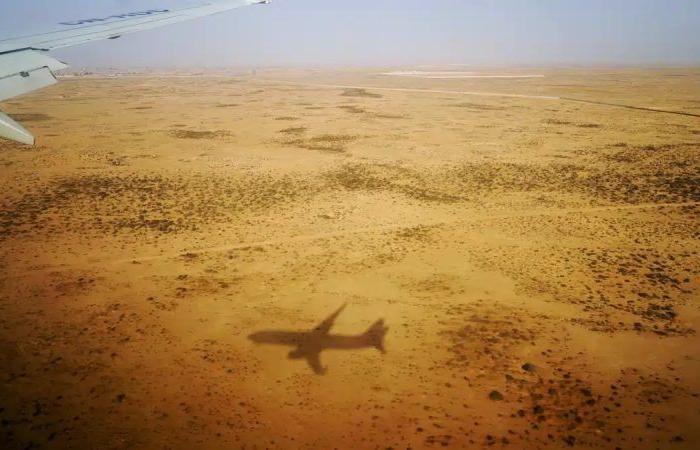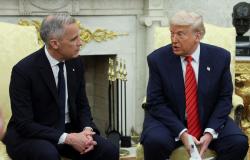While a non-binding proposal has been adopted by the House of Spanish deputies concerning the management of air space above the Sahara, the terms of the debate reveal less frontal opposition in Morocco than an institutional adjustment to a strategic reality now acted: the Kingdom stands out as the legitimate and essential interlocutor in the management of this territory.
It is in an atmosphere that the Spanish House of Deputies voted, Tuesday, May 7, a symbolic motion relating to the management of Saharan airspace. This proposal, carried by the People’s Party (PP), the main conservative opposition party, calls the government of Pedro Sánchez to more “ transparency In his talks with Rabat on the supervision of the Saharan sky. The text, which collected twenty votes to, twelve against – mainly from the PSOE in power – and five abstentions, including those of the far -right party Vox, has no binding value. But it reveals the latent tensions within the Spanish political landscape around a file that Morocco considers as a major strategic achievement.
Behind this vote, there is in reality a war of interpretation on the turn operated by Madrid since the spring of 2022. On that date, a joint historic spouse signed between SM King Mohammed VI and the head of the Spanish government Pedro Sánchez laid the milestones of a partnership ” d’exception “Between the two countries, incorporating explicit recognition for the Moroccan autonomy plan for the first time as a base” The most serious, realistic and credible To solve the dispute from the Sahara. Point 7 of this bilateral declaration, now insistently quoted by the Basque and Catalan nationalist parties, evoked the will of the two parties to strengthen their cooperation in several areas, including “ Airspace management ».
But should we see in the motion voted by the room a real obstacle to the discussions committed? To look more closely, the text only claims any future decision on this file is the subject of a parliamentary debate and receives the approval of international organizations. It does not question the content or the scope of the roadmap signed in 2022. For many observers, it is an internal signal more intended for the electoral base of the PP than Rabat. “” This type of motion is used above all to wave symbols in pre -electoral periods “Consumes a European diplomat stationed in Madrid. “” In practice, it cannot hinder the already underway process between the two governments. »
Read also: Autonomy of the Sahara: an irreversible dynamic carried by Morocco
Because in the field, the management of the airspace of the Moroccan Sahara is not an abstraction. For decades, the technical supervision of this area has been ensured by the Spanish authorities, through the Gran Canaria control center, on behalf of the International Civil Aviation Organization (OACI). However, Morocco, whose sovereignty over the Sahara is recognized de facto by an increasing majority of countries, considers legitimate to supervise all of its national airspace, including Saharan. A request that is part of a logic of institutional integration, but also of technical modernization of the Moroccan air network, one of the most efficient in Africa.
Rabat advances with method
-Contrary to what a fringe of the Spanish political class, Rabat has never unilaterally imposed this request. The kingdom’s approach is based on a progressive dialogue, backed by a renewed partnership with Madrid. It is also no coincidence that the Spanish government has systematically avoided entering the controversy. During the last parliamentary questions on the subject, the Minister of Foreign Affairs José Manuel Albares simply referred to the remarks made in December 2023, qualifying rumors of imminent transfer of the airspace of “disinformation”. A measured response, faithful to the Sánchez government line: avoid provocations, while continuing the roadmap negotiated with Rabat.
On this point, the displayed support of Pedro Sánchez on the Moroccan autonomy initiative has opened a new cycle in bilateral relations. Since 2022, Morocco and Spain have strengthened their trade, intensified energy partnerships (especially around gas and green hydrogen), and started strategic cooperation on maritime security and the fight against illegal immigration. The airspace file is part of this dynamic of trust and co -development. According to several diplomatic sources, such as a lever for technical modernization and administrative simplification, for the benefit of the two countries.
The fact remains that for traditional opponents of Morocco in Spain, especially within far-left parties, Basque independence movements or certain networks close to the Polisario Front, the question of Saharan airspace has become a pretext for relaunching ideological opposition to Hispano-Moroccan normalization. For these circles, symbolism prevails over legal reality. However, in fact, international support for the Moroccan position has been considerably strengthened in recent years: United States, France, Germany, the Netherlands, the United Arab Emirates or Senegal have publicly supported the Moroccan approach to sovereignty, within the framework of a negotiated political solution.
Rabat’s strategy is part of this global dynamic. By consolidating its functional sovereignty in its southern provinces, including in sensitive sectors such as air traffic control, Morocco demonstrates its ability to manage the challenges of safety and development with responsibility. From Laâyoune to Dakhla, modern infrastructure, emerging industrial zones, and growing investments bear witness to a deep transformation, that even the most virulent criticisms in Madrid can no longer ignore.
In the end, the PP motion adopted by the Spanish lower chamber does not reflect a diplomatic rupture, but a temporary tension in the internal parliamentary debate. It does not engage the Spanish government, or the European or international institutions. And above all, it does not change the geopolitical reality: Morocco is today recognized as a credible and stable partner in a region marked by turbulence. As the parenthesis of ambiguity surrounds itself which surrounded the Sahara file in Spanish diplomacy, Rabat continues to anchor its position on the ground, with its historical legitimacy and its strategic vision.








